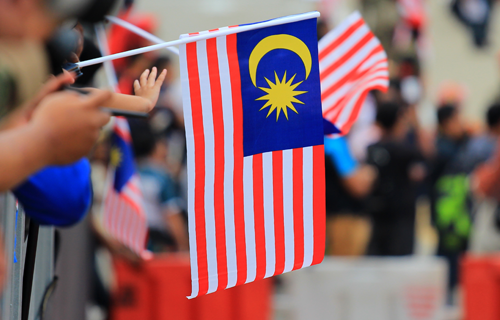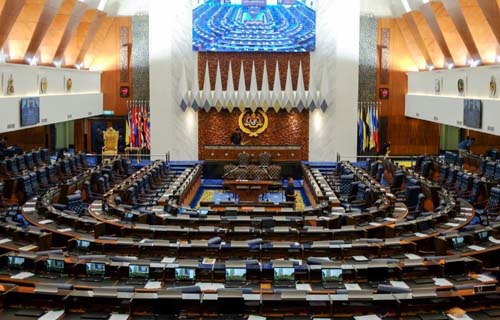Neighbours, Across the Sea

Written by Faye Lee Chin, a member of Akar Umbi Kita, a programme for emerging advocates against racial discrimination by Architects of Diversity, Imagined Malaysia, IDEAS and the European Union. This article is published in conjunction with the International Day for the Elimination of Racial Discrimination.
When I was 7, I first heard the phrase “Kamu Cina kenapa tak tau cakap cina nak cakap Melayu?” said by the hawkers in the morning market to my Dayak Sarawakian mother living in West Malaysia. It was a phrase I would slowly become accustomed to throughout my life. Some asked it curiously, some were rather annoyed, a few were downright angry, as they felt rather offended that my mum spoke to them in the Malay language.
My mum, a pale woman with slightly slanted eyes, would reply kindly and softly every time, “saya bukan Cina”. They would then proceed to ask her, are you Indonesian? Are you Filipino? Or perhaps you are Thai? All the while forgetting across the South China Sea, we have our East Malaysian counterparts.
Growing up, I soon realised that people in the west are quick to categorise a person either as Chinese, Malay or Indian, as if the natives of Sabah and Sarawak do not exist, as if we are not part of Malaysia.
When I was 12, my family and I went to the extended family of my dad’s side to celebrate Chinese New Year. A distant aunt, who I cannot remember anymore, nor do I want to, asked my mother in front of everyone, “Kamu ada adik perempuan atau sepupu yang nak cari kerja? Kami sekarang perlu kakak di rumah”, with a big smile and a glint in her eyes.
As a child I was confused as to what that expression meant, I would grow up to learn that it was one of foolish arrogance and a form of self-gratification disguised as ignorant empathy. She thought she was doing my mother’s family a favour, as if she was some saviour whose duty was to offer them leverage in life, like we needed her help. I like to call it the “west saviour complex”. I could see my mother glowing red in the face, and I remember my older sister stood up from the dining table, with hate, anger and embarrassment in her eyes, took the car keys, and sat in the car for the remainder of the lunch.
From then on, it did not take long for me to learn that many people still look at East Malaysians as if we are people that still live on trees with no form of life skills to our name, like we are only capable of hard labour and can only earn a penny by getting down and dirty. But do not get me wrong, not that there’s anything wrong or less honourable being a cleaner, the problem lies in the insinuation that that particular line of work was the only thing that my Sarawakian family were capable of. My father never brought us back to that house again for all future Chinese New Year’s celebrations, and I love him for that, I am sure my mother did too.
When I was 17, it was time for us to fill in our UPU forms for college entrance. A classmate of mine saw my particulars and something caught his eye. With pure shocked and genuine curiosity, he asked me in a whisper, “你是Bumiputera?! 那你能吃猪肉吗?” (You are a Bumiputera? Then, are you able to eat pork?) That was the first time in my life I actually experienced my jaw dropping to the floor, I was speechless. My other classmates heard the conversation, some laughed, but many were just as curious as him. Being in a vernacular school, it is understandable that my Chinese classmates do not have many Malay friends, but for many of them to not understand what is the definition of a Bumiputera, was the breaking point. It was then that I truly realised the extent of cultural unawareness and lack of racial and political understanding not just among the older generations, but also the youth of Malaysia. If you are reading this in disbelief, do not be, Malaysian education does not cover this in either the primary or secondary school syllabus.
With a slew of memories from the past and a hope for the future, I want to say that I am angry, furious at the lack of realistic inclusivity and representation of East Malaysia in Malaysia. However, it is said that anger is a secondary emotion, a form of grief, so I guess that is what I am feeling, grief. Grief, over the fact that the only time we are seen as any use is when it comes promoting Malaysian tourism. Grief, that our culture of body piercings and hunting tools and costumes are made fun of, but presented with glory on the international stage, performative markers of diverse inclusivity. Grief, at how the only time the east can represent themselves is when it fits the narrative of the west.
These emotions do not end there. This raging disappointment is fuelled by so many questions I have. Why are the flight tickets to Vietnam cheaper than flight tickets to Sarawak? Why am I not able to openly discuss the Malaysian Agreement 1963 in my academic essays? Why is it that Sarawakian and Sabahan history makes up less than 10% of our education syllabus? Where are the voices of the people of Borneo in Malaysian cinema? When can we sit down and properly digest what took place during Project IC and how it affected Sabah? And why on earth is it that the maps in Malaysia draws the west a lot bigger than the east?
I find myself dwelling on questions of what can be done to fix this, and by whom, and the when’s and the where’s, but most importantly, it is the why’s that I kept coming back to. Why does this animosity exist and why is there not a collective and ongoing effort to improve our relations?
Perhaps the reason all of these thoughts and emotions parades itself endlessly in my head is simply because growing up I struggled, quite vehemently, with my identity as an East Malaysian living in West Malaysia. I know I love this country; I know I love its people, but how do I come to terms with the spiralling thought of “I- do- not- belong”? I know I am not alone in this paradox of contradiction. Ask any Sabahan or Sarawakian students studying in any public university in West Malaysia, and they are sure to tell you, in their own words and stories, how different the whole Malaysian experience for someone from the east and someone from the west is. Cosmically all these issues seem extremely mundane, but individually, I believe they are profound, because if unity is part and parcel of our strive for development, who exactly bears the cost of treating East Malaysia as an afterthought?
Whenever I face any form of micro aggression and ‘invisible’ discrimination, my mind cannot help but wonder, after so much that we have been through together, from the addition of food and culture that coloured the Malaysian scene of diversity, to the resources and sweat that poured into building a developed Malaysia, are we forever condemned to just remained as some foreign inhabitants in the minds of the west?
This is not some cry of hatred into void, this is but a plea to consider, after 58 years of Malaysia, just how much do we know our neighbour?


